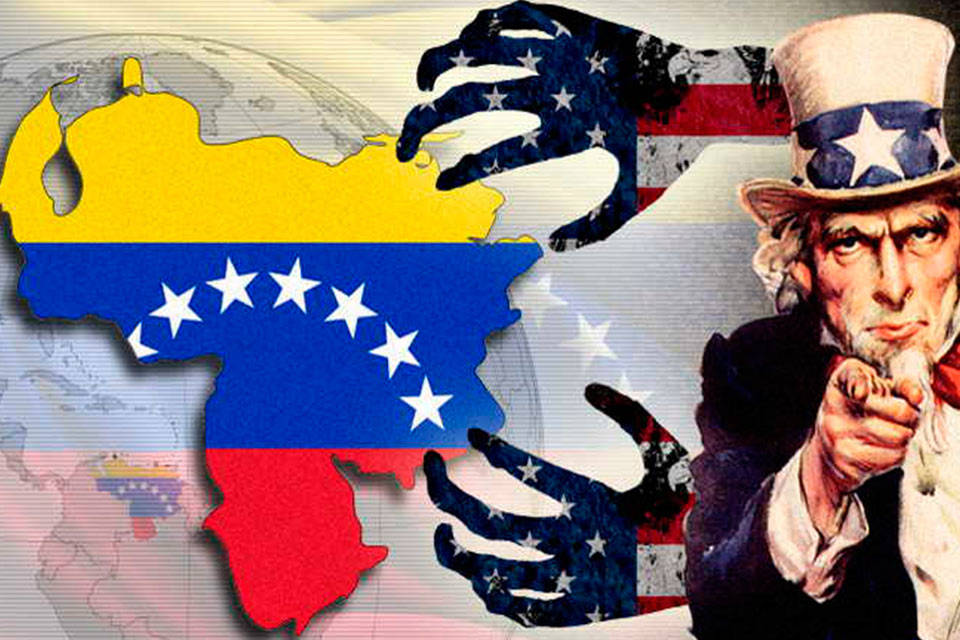
The grassroots opposition remains determined to assert that “all options are on the table” and that all possibilities are being explored, but the reality is that it only bets on the use of force and conflict. They have dismissed the value of the vote as an instrument of the grassroots fight. They mistakenly continue to promote a redemptive military fracture, or the foreign military invasion sponsored by the Donald Trump-Elliott Abrams-John Bolton triad. However, given the unrealistic Operation Liberty’s lack of results, the grassroots opposition now is begging the international community for economic sanctions to be tightened.
The passionate defenders of financial penalties begin with the premise that the worse the Venezuelan standard of living is, the closer we will be to a liberating military fracture, or perhaps to foreign intervention. They idealize the country’s precarious situation, that is, that hunger is transformed into widespread famine, that public services collapse even further and that cessation of oil exports will lead to the departure of the illiterate Nicolás Maduro from Miraflores. How wrong they are.
For those who hallucinate and bet on the success of economic sanctions, it would be good to remind them of some historical examples demonstrating how inefficient blockades and sanctions are in bringing about political change (North Korea, Iran, Iraq, Syria, Cuba and many others). But let’s take the Cuban case for geopolitical reasons.
The commercial, economic and financial embargo of the United States against Cuba was imposed in October 1960 and extended by the Torricelli (1992) and Helms-Burton (1996) laws. The objective was to totally isolate Cuba from the international economic community and to force its economy to collapse to bring about the downfall of what was then Fidel Castro’s government.
Despite being the longest running commercial sanctions in modern history, they were far from achieving the overthrow of the authoritarian model prevailing on the island, and contributed to (1) increasing the hardships of Cuban citizens, (2) entrenching the Havana regime, (3) serving as a perfect excuse to blame the White House administration for all the evils existing on the island, (4) consolidating social control through the heavy militarization of society, and (5) thwarting internal dissent with counterhegemonic aspirations in Cuba.
Likewise, in our country, the economic sanctions imposed by the Trump administration (2017-2019), far from having caused the collapse of the Bolivarian regime and the departure of Maduro, have negatively affected the life of Venezuelans, increasing hunger, misery and social exclusion. According to the National Survey of Living Conditions, the lack of food intake has caused 64% of the country’s population to lose an average of 11 kilograms (approximately 24 pounds). In addition, according to the U.N. report, “Overview of Priority Humanitarian Needs” in Venezuela (March 2019), about 22% of children under five exhibit below-normal psychomotor development due to protein-calorie malnutrition. This is malnutrition that is associated with irreversible morphological changes in the brains of children, causing damage to the intellectual potential of survivors. It is worth asking: Do members of the fascist-Chavist leadership suffer from food shortages, and are their children among the 22% suffering from protein-calorie malnutrition? The answer is no. Each day the Bolivarian nomenclature exudes its morbid obesity, and its children do not suffer from energy deficiencies brought about by protein deficits.
Additionally, the sanctions have further exacerbated the already existing shortage of medicine in the country. The Pharmaceutical Federation of Venezuela has reported that the shortage of essential medicines is about 85%, and, according to the National Survey of Living Conditions and the “Overview of Priority Humanitarian Needs,” more than 300,000 people are at risk of death due to lack of access to medicine and treatment. This includes patients with HIV, cancer, diabetes and hypertension, and those who need dialysis. Does this affect the bureaucratic-military Bolivarian clique? Of course NOT – they don’t suffer from the dramatic shortage of medicines experienced by the common Venezuelan.
It is evident that the sanctions have accelerated the economic collapse that has negatively impacted Venezuelans’ living conditions. This has been denounced by U.N. Commissioner for Human Rights Michelle Bachelet.
The steadfast supporters of sanctions have already announced that they will not participate in the elections announced for the National Assembly. Speaking euphemistically, they hide their adherence to the policies of the White House, whose spokespeople have affirmed that there cannot be elections in Venezuela while Maduro is in power.
With their mistaken strategy, the lovers of “no” (to elections, negotiations and dialogue) promote a safe way out from the north, pretending to “Cubanize” our crisis. A Cubanization that has involved (1) unreserved return of political spaces such as governments, mayoralties, regional councils and possibly the National Assembly; (2) implementation of a sterile and fanciful symbolism (parallel organizations, shadow cabinet); (3) intransigence and little willingness for constructive dialogue; and (4) renunciation of all electoral participation. All this hinders the formation of a possible electoral way out of the crisis affecting us.
We Venezuelans are at a crossroads: Either we favor negotiation that allows us to overcome the crisis through elections, or we allow the confrontation to prevail and allow hopelessness, poverty and hunger to destroy the little that remains of our country.

Leave a Reply
You must be logged in to post a comment.